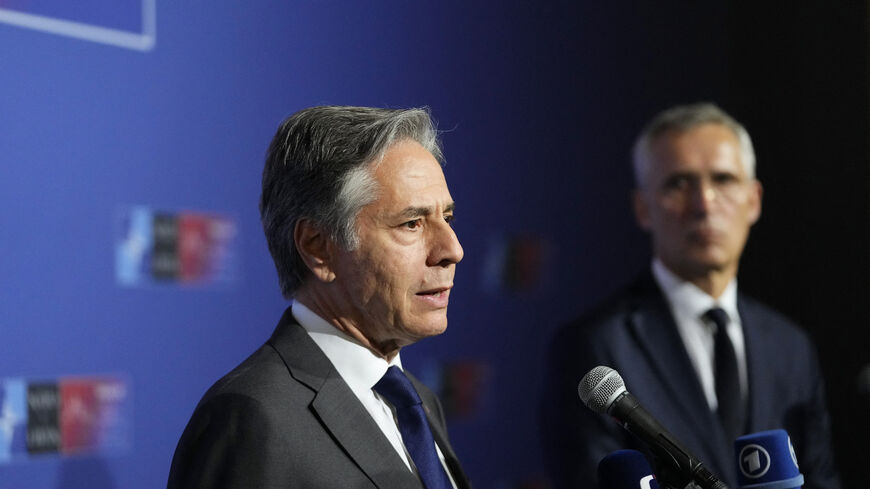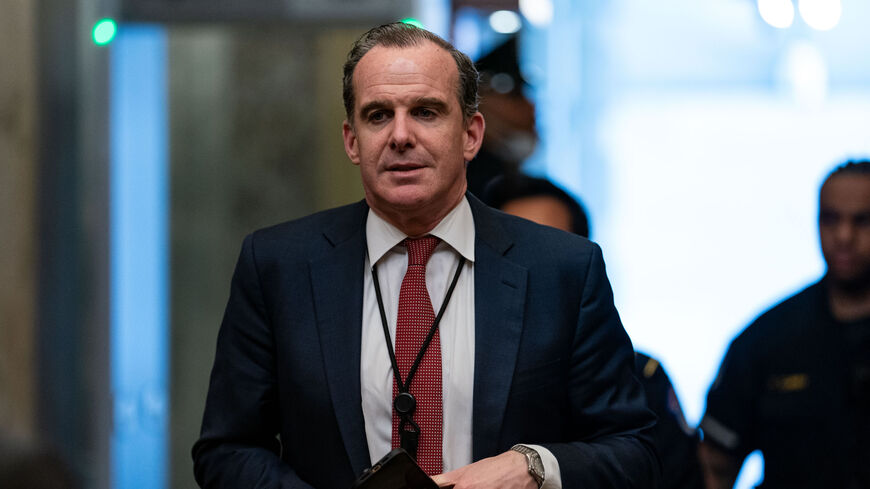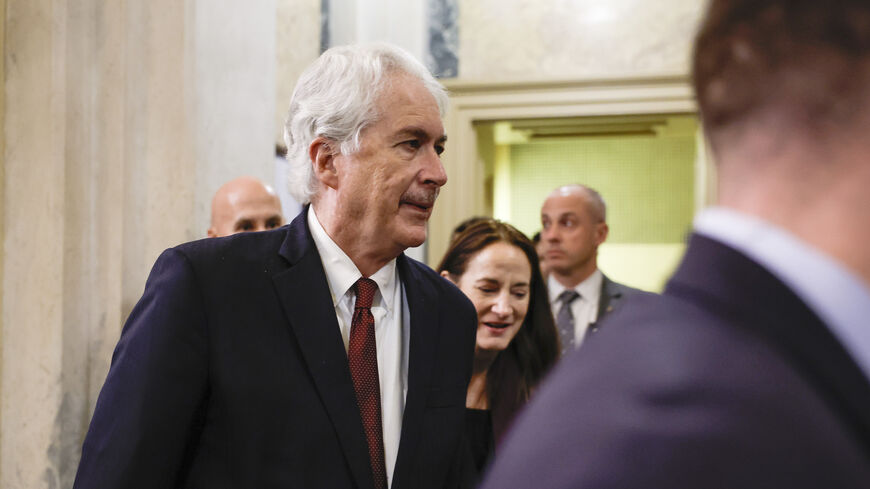White House envoy McGurk heads to Jordan, UAE ahead of Netanyahu’s US visit
President Joe Biden is expected to meet Israeli Prime Minister Benjamin Netanyahu next week as Washington doubles down on its pursuit of a cease-fire in Gaza and initial steps toward Palestinian statehood.

WASHINGTON — US President Joe Biden’s top adviser on the Middle East departed for the region on Thursday with planned stops in Jordan and the United Arab Emirates, the White House confirmed.
Brett McGurk is expected to discuss the ongoing conflict in Gaza and next steps in the administration’s vision for postwar security in the devastated Palestinian enclave.
National Security Council spokesperson John Kirby said on Thursday that McGurk was scheduled to stop "primarily" in the UAE and Jordan, but made no mention of other potential destinations.
Why it matters: The Biden administration is doubling down on its pursuit of a cease-fire in Gaza in hopes that Israeli leaders will eventually agree to steps toward Palestinian statehood.
“It’s not about a plan B. It’s still about plan A,” Kirby told reporters in response to a question from Al-Monitor.
Kirby further stated that the Biden administration has “indications” that both Saudi and Israeli leaders remain interested in normalizing ties, a key objective for the administration’s broader strategic vision for future US engagement with the Middle East.
But Israel’s current government has refused to agree to one of Riyadh’s main conditions — steps toward Palestinian statehood — in the wake of the Oct. 7 Hamas attacks, which left 1,200 people dead in Israel.
On Thursday the Knesset broadly passed a resolution with a vote of 68-9 opposing the establishment of a Palestinian state, which lawmakers said “will pose an existential danger to the State of Israel and its citizens and perpetuate the Israeli-Palestinian conflict and destabilize the region.”
The resolution further condemned the idea of a Palestinian state in the wake of the Oct. 7 attacks as “a reward for terrorism” and “a prelude to the takeover of jihadist Islam in the Middle East.”
Officials in Washington have interpreted it very differently, describing progress toward long-delayed Palestinian statehood and a historic establishment of formal diplomatic ties between Saudi Arabia and Israel as key steps toward de-escalating hostilities with Iran and various militias it backs across the region.
But first, Biden administration officials say a cease-fire must be reached to end the war in the Gaza Strip. McGurk and CIA Director Bill Burns were in Cairo just last week to push for an agreement.
“If you can get to that, then you can begin to really start to lay the groundwork for post-conflict governance in Gaza,” Kirby said Thursday. “And then you can really start laying some tracks toward a potential two-state solution over the long haul,” he added.
“Nobody is blind here to how difficult that’s going to be,” Kirby acknowledged.
What’s next: Israel’s prime minister, Benjamin Netanyahu, is expected to meet President Biden during a visit to Washington next week, despite Biden’s recent COVID-19 diagnosis.
Netanyahu will also address the US Congress following an invitation by a bipartisan group of lawmakers in May.
Know more: During a visit to Gaza’s Rafah border area on Thursday, Netanyahu said the Israeli military would maintain its control over the Philadelphi Corridor along the Egypt-Gaza border.
The prime minister’s remarks appeared to disregard the concerns of Egyptian officials while undermining a US-backed proposal that would see an underground barrier fitted with surveillance sensors installed to prevent infiltration. Al-Monitor first reported on that proposal last week.
Egyptian officials slammed the Israeli military’s unilateral takeover of the Rafah border strip in May as a potential threat to the two countries’ 1979 peace treaty, but Israeli officials have defended the move, saying their forces found extensive Hamas smuggling tunnels in the area.
An Israeli delegation arrived in Cairo earlier this week to discuss future arrangements for the border.








